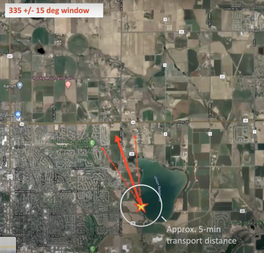
On July 28, Longmont City Council heard from Dr. Detlev Helmig, an expert in remote monitoring of air quality, with an update on recent ethane, methane, and benzene levels in Longmont. [Click HERE for the presentation link and go to 1:42 in the meeting.] Research has shown that the presence of these compounds is directly tied to oil and gas activities. Dr Helmig has been monitoring these levels - check out today’s results HERE - along with ozone, CO2, and nitrous oxide, since 2019 at two different sites in Longmont: Union Reservoir, and Vance Brand Airport. He reported that there have been significant spikes in all of these compounds since the start of 2020, and that Longmont has exceeded the National Ambient Air Quality Standards for ozone on several occasions during the months of June and July. The original purpose of his air quality monitoring contract was so that Longmont would have the information necessary to meet its goals, as stated in the Longmont Sustainability Plan, to increase public access to local air quality information, and to reduce greenhouse gas emissions. Thanks to this access to air quality information, we can see the impact that oil and gas production is having to increase GHG, and the dangerous impacts on air quality and health, in Longmont. Clearly, we are going in the wrong direction in our efforts to fight the climate change emergency. In addition to moving our city to renewable energy in the long run, we must address oil and gas activity more immediately. City staff reported during this same meeting that a new access road is going in just north of Union Reservoir for a new well site which will begin drilling in September.
What can we do?
Write an email to City Council members in support of:
- The need for ongoing monitoring - if we don’t have the data, we won’t have a chance at reaching our air quality goals.
- Setting up alerts that notify the public in real time when harmful pollutants such as benzene and ozone are above recommended levels.
- Extending Dr. Helmig’s contract beyond one year. City Council will be deciding whether to contract with Boulder AIR for an additional year, and without this air quality monitoring, we are blind when it comes to setting and reaching air quality goals for our city.
In addition, you can email your state legislators, the Colorado Oil and Gas Conservation Commission, the Air Quality Control Commission and the Boulder County Commissioners with your concerns about the impact of oil and gas operations in Weld County and their effect on the air quality in Boulder County.
And plan to virtually attend the August 25 City Council meeting, when Council will decide whether to extend Dr Helmig’s air quality monitoring contract with the City.
There has been recent research out of Harvard on the connection between poor air quality and COVID 19 deaths. During this pandemic, doesn’t Longmont deserve to have clean air to breathe? Shouldn’t we know what is in our air, and where these dangerous compounds are coming from? City Council needs to stand up for the health and well being of the residents of Longmont - and committing to air quality monitoring is one important step in the right direction.

 RSS Feed
RSS Feed